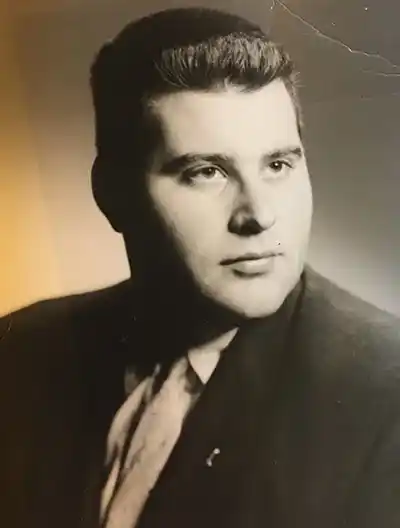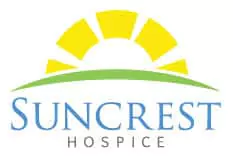HOSPICE: IT’S NOT WHAT YOU THINK
By Chaya Parkoff, MSW, LSW – Suncrest Hospice
When I was five weeks old my father was diagnosed with inoperable stomach cancer, and when I was six months old, he died. He was 28 years old.
That was in 1967, seven years before hospice would be available in the United States. With me being a Hospice Social Worker, knowing what I know about hospice, I only wish we could have benefitted from hospice care during the last five months of my father’s life.
Yes Five Months
You see, most people think hospice is a place a person “goes to” or a service a person “goes on” when they are about to die. With this image of hospice, if a family decides to take advantage of hospice care, they usually wait until the person is a week, or days, or even hours away from dying. They wait until “the end.” So when the families comes to us, they are most often in crisis mode, desperately trying to make sound decisions while so much is spinning around in their heads and hearts. Navigating the new medical jargon, wondering, “Am I doing right by my loved one?” or “How am I going to take off work?” is difficult enough, then you add the anticipatory grief that has been bubbling inside and begins to surface. Of course we who work in hospice care are grateful that we have the resources and expertise to make a person comfortable, even if it’s just for those last few hours of life, but we also know how much more we could have given the dying person and their loved ones, had they only known the truth about hospice and welcomed hospice care into the picture as soon as the person was eligible, which most often would have been at least six months earlier.
As a Hospice Social Worker who knows what hospice care actually does, I often imagine what those last five months could have been like for my father and our family had hospice been available back then, and had my family been knowledgeable enough to take advantage of hospice right away. It would have been so valuable to have a hospice nurse come to the house at least twice a week to assess my father for any discomfort he might be having, as the cancer wreaked havoc on his body. In collaboration with my father’s doctor or the hospice Medical Director, the nurse would be able to continually tweak my father’s medications to keep my father comfortable and alert.
"While no one explicitly told my father that he was dying, I know that on some level he knew what was going on."
As you can imagine, my mother was in complete denial – who could blame her, being only 24 years old with two small children, no job (she was a stay-at-home-mom back then), and without even knowing how to drive! Oh how supported we could have felt with our very own Hospice Social Worker to provide emotional and practical support to my mother, my sister, and my grandparents. Hospice Social Workers provide, in a sensitive way, end of life education which more often than not serves as a relief for people and their loved ones. They listen, identify, validate and provide information that so often addresses those very topics that people have been worried about. Their support is indispensable.
[vc_single_image image=”647″ img_size=”full” add_caption=”yes” alignment=”center” css_animation=”bounceInLeft”][vc_empty_space][vc_single_image image=”654″ img_size=”full” add_caption=”yes” alignment=”center” css_animation=”bounceInLeft”]
While no one explicitly told my father that he was dying, I know that on some level he knew what was going on. After all, this was happening TO HIM. It breaks my heart to think what that must have been like for him, to be only 28 years old, having to face the reality that his life was ending and he would be abandoning his wife and small children. How amazing it would have been for my father to have a hospice chaplain to talk to about his life story, his fears, and perhaps to process any existential issues he might have been grappling with. The chaplain would honor my father’s faith system, even bringing in a Rabbi if that is something my father or family wanted.
In this retro-fantasy, we would have used Suncrest Hospice, because Suncrest is committed to providing Certified Nursing Assistants (CNA’s) on a daily basis, not just a couple of times a week. I get to work with these incredible CNAs, who, in my opinion are angels with skin on! I imagine what a relief it would have been to have a CNA come everyday to assist my father with personal care needs, which would have increased as his illness progressed. I see the relationships that our patients and CNA’s build. Their companionship and care is indescribable. I also believe we would have benefited greatly from a hospice volunteer. This is a person in the community who would have chosen to spend an hour a week to visit with my father, or maybe even to play with me and my sister so my mother could take a much needed nap, or for my father and mother to take a walk! After all, my father was not bedridden for those entire five months. With a hospice team supporting us, things could have been very different for my family. I know how different it could have been because I work with families everyday who are going through this, and they tell me again and again how grateful they are for our support.
The end of a person’s life is a defining time for that person and their loved ones. Without hospice, most often this time is defined with words such as “crisis,” “painful,” “depressing.” With hospice, however, this time has the ability to be defined as “meaningful,” “comforting,” “a blessing,” “uplifting.” Hospice care has the potential to make the last months or sometimes even years of a person’s life as meaningful, purposeful, and comfortable as possible for the dying person and their loved ones.
Here is the message I want you to get: Hospice is NOT about dying. Hospice is about LIVING.
While most people think that a hospice diagnosis is a death sentence, I would argue that it is actually a LIFE SENTENCE. It brings home the reality that death is part of life, and with hospice care we have the ability to make the end of life more than we could have ever imagined.



